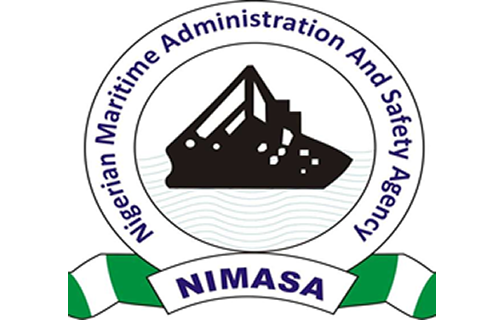The recent statements by Dr. Dayo Mobereola, the Director General of the Nigerian Maritime Administration and Safety Agency (NIMASA), have highlighted key issues regarding the obsolescence of critical records maintained by the agency with the International Maritime Organization (IMO). During a visit to the IMO’s Secretary General, Arsenio Dominguez, in London, Mobereola revealed that he was initiating a comprehensive review and update of these records. The purpose of this meeting was primarily to ensure that NIMASA was aligned with the IMO as the next audit cycle approaches. Mobereola emphasized that the audit should not be perceived as a mere examination but rather as a valuable guide to facilitating Nigeria’s maritime potential. His proactive engagement reflects a commitment to restoring and enhancing the agency’s operational frameworks vital for national maritime administration.
In this context, Mobereola articulated a broader strategic vision for NIMASA’s role in global maritime diplomacy. He underscored the necessity for Nigeria to position itself as a formidable voice in the maritime sector, complementing its recent achievements in enhancing safety and security within its waters. Mobereola affirmed that concerted efforts would be made to sustain these achievements while also fortifying relationships both domestically and internationally. He stated that the primary objective of NIMASA would be to elevate Nigeria’s influence within the regional and global maritime landscapes. This aspiration is indicative of a strategic shift towards more inclusive maritime governance and the enhancement of Nigeria’s role within the IMO framework.
Building on this, Mobereola announced the establishment of a committee by the Minister of Marine and Blue Economy, Adegboyega Oyetola, to address concerns highlighted in the previous 2016 IMO audit. This committee will be tasked with a comprehensive review of NIMASA’s enabling laws, aiming to implement an effective corrective action plan. Mobereola’s focus on rectifying past shortcomings demonstrates a commitment to accountability and improvement, critical for nurturing trust and collaboration with international maritime bodies. By addressing the recommendations from the earlier audit, NIMASA is expected to adopt a more proactive approach to compliance and enhancement in operational standards.
In the meeting, IMO Secretary-General Dominguez commended Nigeria’s leadership in safeguarding commercial shipping safety within the Gulf of Guinea, especially in light of escalating traffic due to challenges such as heightened piracy incidents in the Red Sea. He acknowledged NIMASA’s efforts to engage technical teams at the IMO for closing the gaps identified in prior audits, underscoring a spirit of collaboration. Dominguez emphasized the importance of addressing security challenges in these critical maritime areas, demonstrating the symbiotic relationship between national efforts and international maritime security frameworks. His support boosts the initiatives underway and reflects the recognition of Nigeria’s significant role in regional maritime security.
Dominguez’s encouragement for continued partnership between the IMO and Nigeria underscores the mutual benefits associated with international cooperation. The IMO Secretary-General expressed his readiness to provide technical assistance as NIMASA strives to update its operations. This ongoing collaboration is crucial for Nigeria as it seeks to enhance its maritime frameworks and achieve international standing in maritime governance. The dialogue reinforces the idea that collective efforts in addressing maritime security are key to the stability of the region, especially with regards to the new pressures faced in the Gulf of Guinea amid shifting maritime traffic dynamics.
Lastly, both leaders echoed a shared commitment to improving the Global Integrated Shipping Information System, aimed at enhancing service delivery to member states. This technological advancement is paramount for member states to monitor maritime activities effectively and mitigate risks associated with shipping dynamics. The initiative signals an important shift toward leveraging digital solutions for implementing maritime security strategies globally. By acknowledging and addressing existing gaps and continuously improving their operational capacity, NIMASA, under Mobereola’s direction, aims to redefine its maritime governance and safeguard Nigeria’s interests in the broader maritime community. Through these concerted efforts, NIMASA aspires to emerge as a key player not only within African waters but globally, ensuring that Nigeria’s maritime potential is fully realized.














